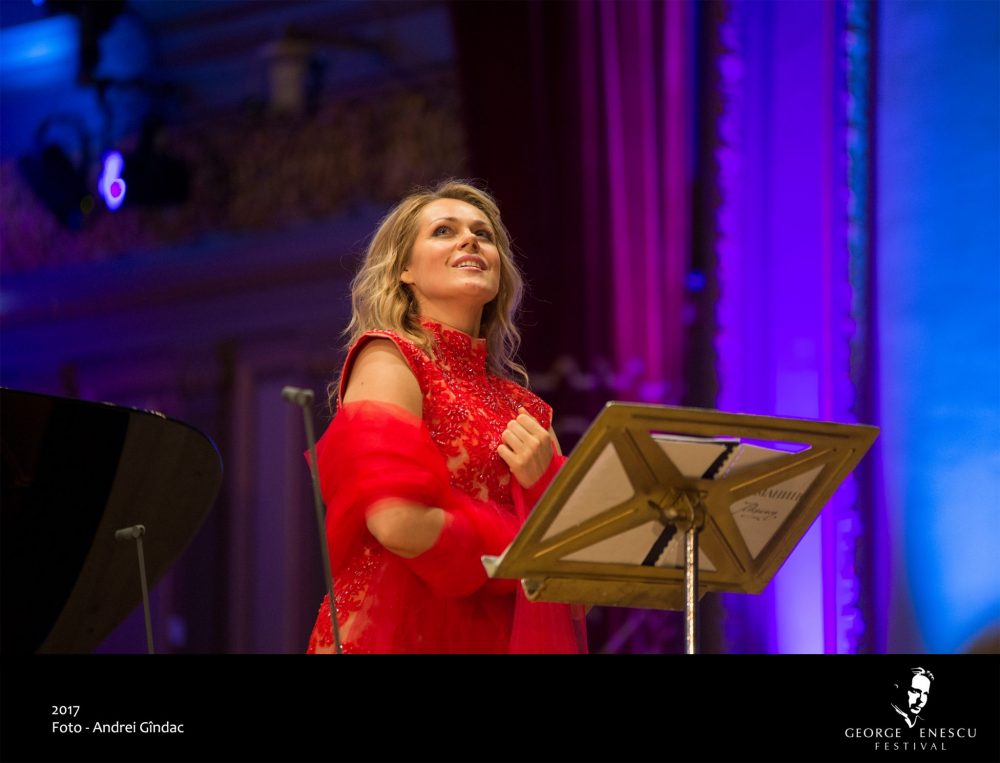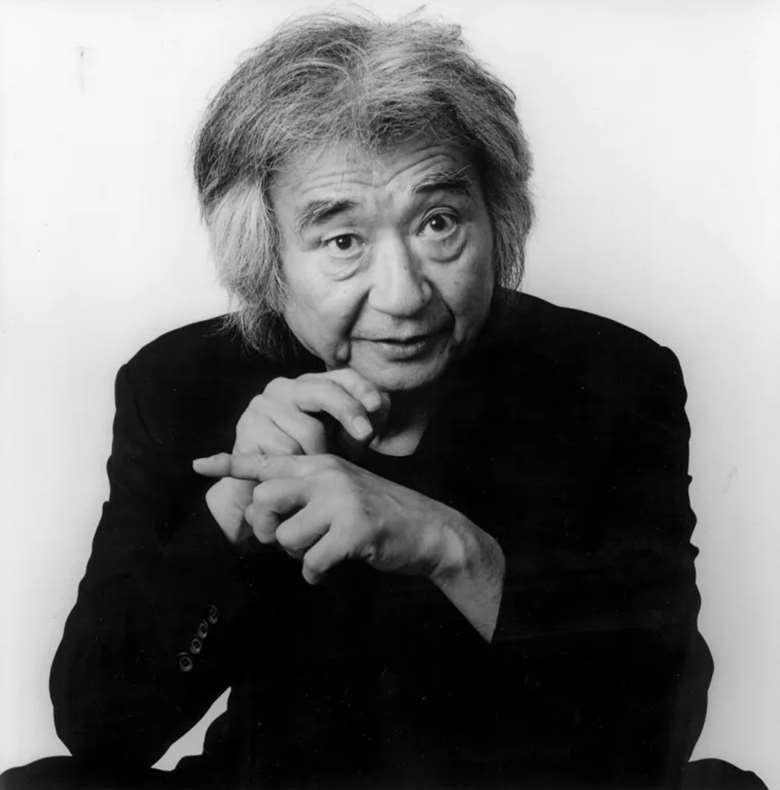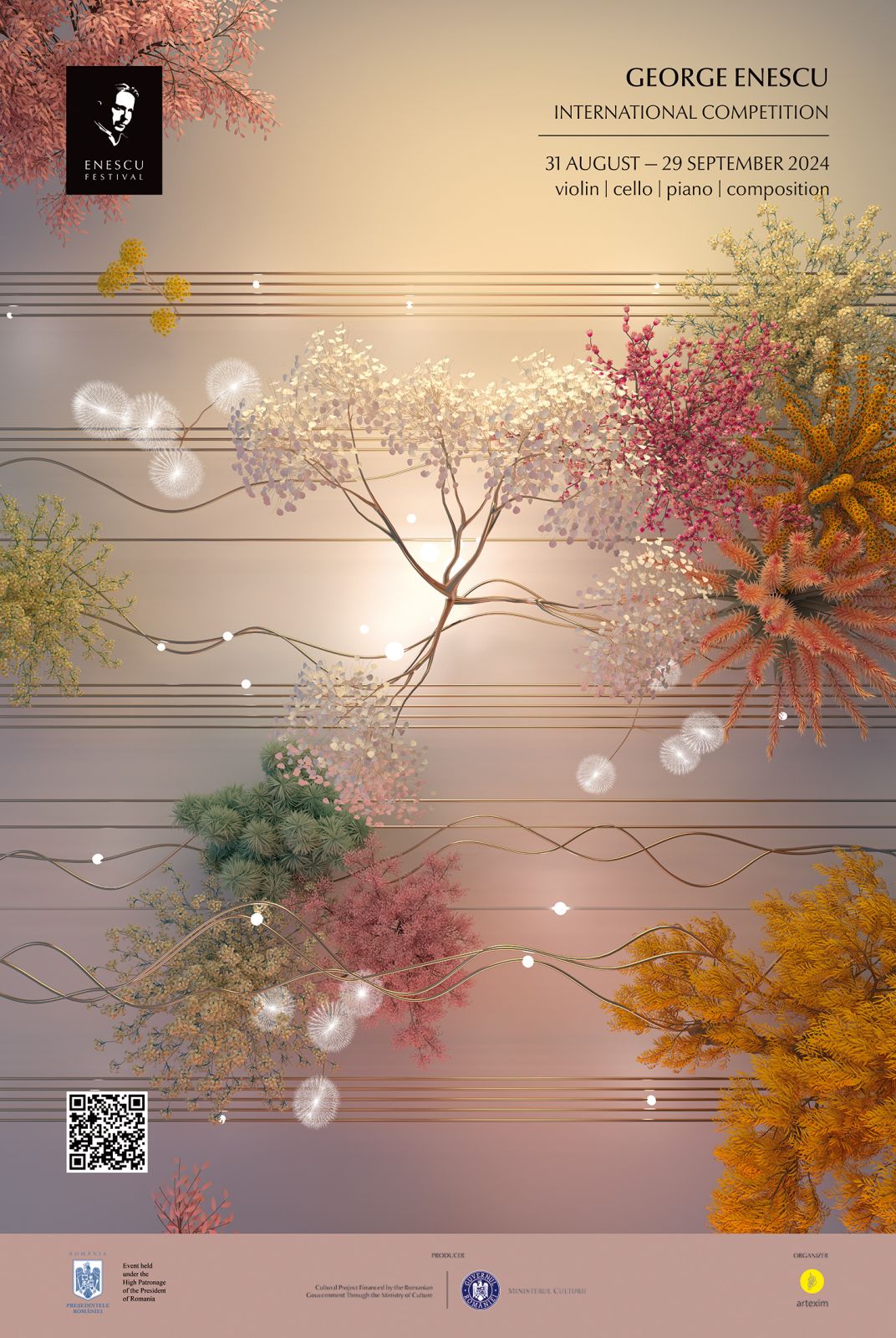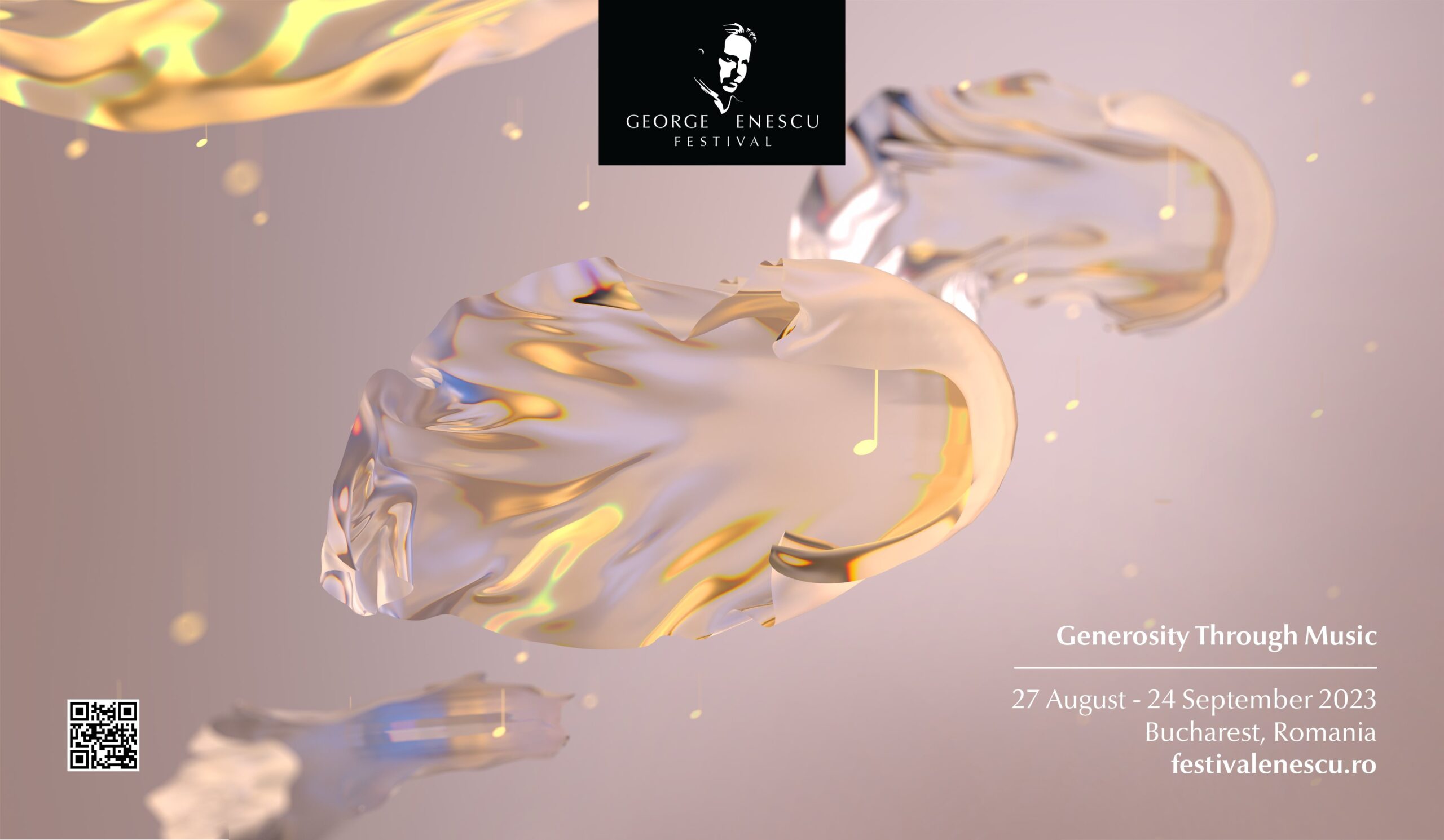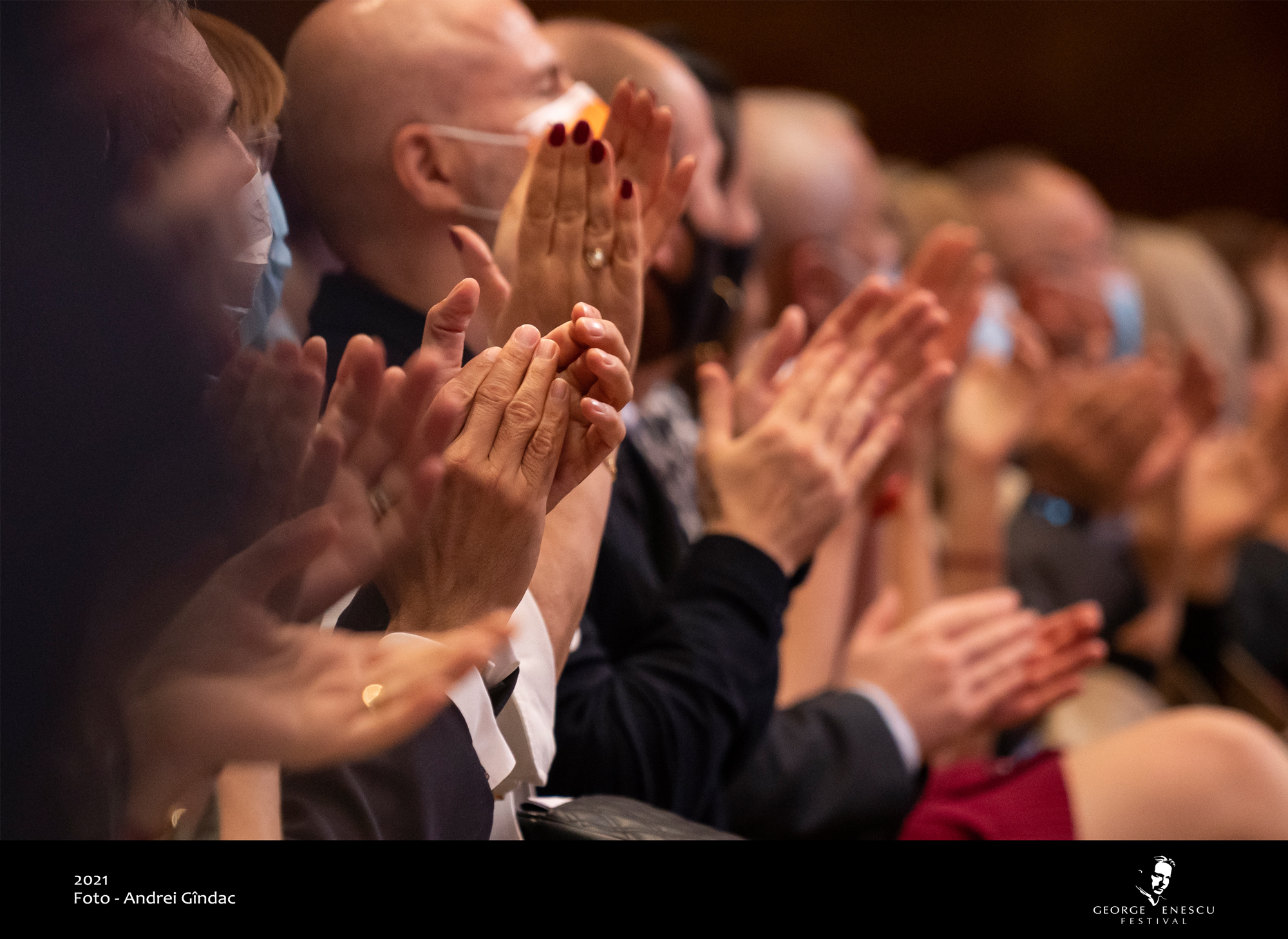After her intense performance, at times imbedded with sparks of the actress-diva that she is on stage, she greeted me backstage looking even more beautiful up close. Opolais is known for her innate expressiveness and theatrical interpretation skills, which have contributed to her success at various major opera houses around the world. Among other places she is performing at, the Royal Opera House in London has her as one of the must-see opera stars in the 2017-2018 season. Kristine Opolais is a voice, a personality and a performer certainly interesting to follow.
Interview by Cristina Enescu
How did you experience your concert tonight at the George Enescu Festival?
It’s my first time in Romania and, as you know, everything happened so suddenly, actually like many important and good things in my life. Probably when there is no time to think too much, it makes you especially real and honest. I wanted to present a program that pays tribute to the repertoire Dmitri Hvorostovsky was scheduled to sing. I had very little time to prepare the Tchaikovsky and Rachmaninov songs, many of which I had never sung before. Tatiana’s Letter Scene from Evgheni Oneghin and Rusalka’s aria I was obviously very familiar with.
Indeed, beyond the intense interpretation you offered here, this piece has also played a big role in your life, as in 2004 it triggered the spark between you and your (then) future husband, conductor Andris Nelsons.
It’s true. The aria holds a very special place in my heart. Tatiana is afraid to open her heart to Evgheni, but in the end she does send him the love letter. For her it’s a true love for life, not just a sexual experience, and Oneghin ends up breaking her heart.
It was much later, when Andris and I were already married, that I saw an interview of my husband and learned that he fell in love with me during and because of that Letter scene, that I was performing for the first time in my life at that time.
“She loves to play and create characters” is how Roberto Alagna has described you, and your role model Rene Fleming has seen “the total performer” in you. What does that mean to you?
I didn’t know that Renee said that about me… Indeed, she was there for my Rusalka debut in Munich. It’s really nice to hear that from a person who inspired me so much. My first solo concert in 2010 was completely inspired by her Smetana and Tchaikovsky CD with Valery Gergiev (Homage: The Age of the Diva, 2006). Also Roberto, we did Manon Lescaut at the Met without a lot of preparation, and then right afterwards, Madama Butterfly. It was crazy but wonderful to get to know each other.
For me, performing, singing and acting are a unity. You know, I wanted to be an actress, not an opera singer, so if I don’t believe myself in a role, it will affect my singing too.
That’s why I love Maria Callas so much. I feel all the accents she makes with her voice. She was probably one of the most criticized singers in the world, but she was so great because she was never the same. I believe in that, we should get goose bumps not only through great vocal technique – if a singer can do that, chapeau bas, it’s fantastic. But I love it when the voice expresses the emotions.
Many say that nowadays, in the age of cinema and multimedia, in order to survive and attract, opera cannot focus exclusively on musical perfection. Do you agree?
Oh yes. If you are looking for a perfect sound, then just buy a CD. In a live performance, though, you need more than just a beautiful voice. You do need voice and technique, but it’s not enough, it will not touch people’s hearts. You have to present a part of your soul. Remember Renata Scotto, Renata Tebaldi, Maria Callas.. Great artists who were bringing so much more than just a great singing technique. One can learn the technique, the beauty of the voice is given by God, but you cannot learn to be artistic, that is a gift. We are channels of our gift for the audience.
You cannot learn to be artistic, that is a gift.
You said that 50 years ago there were a lot of people with large bodies performing amazingly, but nowadays audiences don’t want to see “fat people” on stage. Is this damaging the operatic eperience?
Indeed, I think people are hungry for art, but unfortunately, as an artist sometimes you think less about music and the magic of performing on the stage and more about your looks. I think it’s just a trend coming from the media. It’s fantastic to have a great physical appearance, but it has little to do with great artistry … It’s not good if we keep this trend for the young generation.
Also, you see, besides looks, I am one to have been born within the Soviet Union, so I had an interesting and intense life. We saw much more than probably the musicians who grow up in more comfortable backgrounds.
Why do you feel that?
Because we lived through various experiences. I had times in my life when I had nothing to eat. The more you go through difficult times while growing up as an artist, the more this will make your art more colourful. Everybody asks me if I attended some acting school – no, it was just what my life taught me. I hear so much about “artists enjoying every performance all the time so much…” You cannot enjoy a performance if you’re suffering during the show, but you must suffer if you are Tosca and are true to yourself, or in the fourth act of La Bohème.
You are known as a Puccini lover. What fascinates you about his music?
Well, not everybody can sing Puccini. You need a strong technique. The orchestra is very strong and loud there, but that music is freedom and passion. It’s very rare that singers who sang Mozart will then go on to Puccini, like I have, they mostly turn to Wagner or Verdi. Puccini is something that you are either blessed with or not, you need to be able to vibrate to his music. I know people who are not moved by Puccini’s music at all.
Artists or members of the audience?
Singers and some conductors too. Mozart is loved by everyone, but Puccini is something you have or you don’t in your voice. For me, the most difficult is Madama Butterfly, there you need to combine everything, you need to start with a dramatic, full voice, but later you come on stage as a 15 years old girl, with a very simple voice while she’s making conversation with Pinkerton and Sharpless. What I like about Puccini is the freedom. You have to give 200% to this music, but the next morning you are fresh again, I have heard that from other performers too.
In 2014 you were announced 5 ½ hours before that you had to perform Mimi in La Bohème at the Met’s matinee. How was that?
I think it was destiny, and it happened precisely with Puccini. The Met’s general manager, Peter Gelb, called me shortly after 7 am, it was the morning after my first Butterfly at the Metropolitan and I couldn’t sleep until 5 am. I thought he was talking about having me sing Mimí that evening, so I said “you know, I need the whole day to look at the music because my last Mimi had been about a year ago”, and he said “no, no, we don’t have all day, we need to start at 12.30pm!”. I was shocked, I said I cannot do it, but after 5 minutes I called him back and he said “I just knew you’d call, it would be a mistake to say no”. You cannot repeat such experiences, it’s not healthy, but that day was special. 50 years from now, when I’ll speak in a high-pitched voice to my grandchildren, I’ll say “yeah, that crazy story is a part of the history of the Metropolitan Opera”.
Most every singer has at some point been subject to bad reviews. How do you take negative critics?
I was never lucky with the critics, there were just some very warm reviews about me. Somehow, I always remember the experience of Maria Callas. If you choose to be a critic you have to understand that your opinion is very subjective. We are all perceived performances differently. The best thing as a performer, I believe, is not reading reviews at all.
You didn’t know even about the appreciative things that Alagna or Fleming said about you?
No, I never know. We, artists, should be polite towards each other. I have a lot of respect for all my colleagues, because bashing someone is very easy. Artists should always perform to the best of their ability, but they are also human and sometimes have bad days, it’s normal. Critics offer their opinions, but sometimes there could be more sensitivity about how they do it. One can kill with words.
Why are you in love with opera, at your core?
It is a gift to be able to be an opera singer and make art for a living. I didn’t choose this profession, my mother did, I wanted to become an actress. Of course, there are composers who speak to me more than others, but generally I feel opera is a space where I can experience all these different life stories and fates. It is fascinating. It’s better to play the drama than live the drama in your real life.

